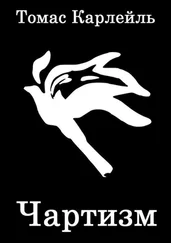Томас Карлейль - History of Friedrich II of Prussia — Volume 20
Здесь есть возможность читать онлайн «Томас Карлейль - History of Friedrich II of Prussia — Volume 20» — ознакомительный отрывок электронной книги совершенно бесплатно, а после прочтения отрывка купить полную версию. В некоторых случаях можно слушать аудио, скачать через торрент в формате fb2 и присутствует краткое содержание. Жанр: foreign_prose, История, literature_19, foreign_edu, foreign_antique, на английском языке. Описание произведения, (предисловие) а так же отзывы посетителей доступны на портале библиотеки ЛибКат.
- Название:History of Friedrich II of Prussia — Volume 20
- Автор:
- Жанр:
- Год:неизвестен
- ISBN:нет данных
- Рейтинг книги:5 / 5. Голосов: 1
-
Избранное:Добавить в избранное
- Отзывы:
-
Ваша оценка:
- 100
- 1
- 2
- 3
- 4
- 5
History of Friedrich II of Prussia — Volume 20: краткое содержание, описание и аннотация
Предлагаем к чтению аннотацию, описание, краткое содержание или предисловие (зависит от того, что написал сам автор книги «History of Friedrich II of Prussia — Volume 20»). Если вы не нашли необходимую информацию о книге — напишите в комментариях, мы постараемся отыскать её.
History of Friedrich II of Prussia — Volume 20 — читать онлайн ознакомительный отрывок
Ниже представлен текст книги, разбитый по страницам. Система сохранения места последней прочитанной страницы, позволяет с удобством читать онлайн бесплатно книгу «History of Friedrich II of Prussia — Volume 20», без необходимости каждый раз заново искать на чём Вы остановились. Поставьте закладку, и сможете в любой момент перейти на страницу, на которой закончили чтение.
Интервал:
Закладка:
DIALOGUE OF FRIEDRICH AND HENRI (from their Private Correspondence: June 7th-July 29th, 1760)
FRIEDRICH (June 7th; before his first crossing Elbe: Henri at Sagan; he at Schlettau, scanning the waste of fatal possibilities). ... Embarrassing? Not a doubt, of that! "I own, the circumstances both of us are in are like to turn my head, three or four times a day." Loudon aiming for Neisse, don't you think? Fouquet all in the wrong.—"One has nothing for it but to watch where the likelihood of the biggest misfortune is, and to run thither with one's whole strength."
HENRI... "I confess I am in great apprehension for Colberg:"—shall one make thither; think you? Russians, 8,000 as the first instalment of them, have ARRIVED; got to Posen under Fermor, June 1st:—so the Commandant of Glogau writes me (see enclosed).
FRIEDRICH (June 9th). Commandant of Glogau writes impossibilities: Russians are not on march yet, nor will be for above a week.
"I cross Elbe, the 15th. I am compelled to undertake something of decisive nature, and leave the rest to chance. For desperate disorders desperate remedies. My bed is not one of roses. Heaven aid us: for human prudence finds itself fall short in situations so cruel and desperate as ours." [Schoning, ii. 313 ("Meissen Camp, 7th June, 1760"); ib. ii. 317 ("9th June").]
HENRI. Hm, hm, ha (Nothing but carefully collected rumors, and wire-drawn auguries from them, on the part of Henri; very intense inspection of the chicken-bowels,—hardly ever without a shake of the head).
FRIEDRICH (June 26th; has heard of the Fouquet disaster).... "Yesterday my heart was torn to pieces [news of Landshut, Fouquet's downfall there], and I felt too sad to be in a state for writing you a sensible Letter; but to-day, when I have come to myself a little again, I will send you my reflections. After what has happened to Fouquet, it is certain Loudon can have no other design but on Breslau [he designs Glatz first of all]: it will be the grand point, therefore, especially if the Russians too are bending thither, to save that Capital of Silesia. Surely the Turks must be in motion:—if so, we are saved; if not so, we are lost! To-day I have taken this Camp of Dobritz, in order to be more collected, and in condition to fight well, should occasion rise,—and in case all this that is said and written to me about the Turks is TRUE [which nothing of it was], to be able to profit by it when the time comes." [Schoning, ii. 341 ("Gross-Dobritz, 26th June, 1760").]
HENRI (simultaneously, June 26th: Henri is forward from Sagan, through Frankfurt, and got settled at Landsberg, where he remains through the rest of the Dialogue).... Tottleben, with his Cossacks, scouring about, got a check from us,—nothing like enough. "By all my accounts, Soltikof, with the gross of the Russians, is marching for Posen. The other rumors and symptoms agree in indicating a separate Corps, under Fermor, who is to join Tottleben, and besiege Colberg: if both these Corps, the Colberg and the Posen one, act, in concert, my embarrassment will be extreme.... I have just had news of what has befallen General Fouquet. Before this stroke, your affairs were desperate enough; now I see but too well what we have to look for." [Ib. ii. 339 ("Landsberg, 26th June, 1760").] (How comforting!)
FRIEDRICH. "Would to God your prayers for the swift capture of Dresden had been heard; but unfortunately I must tell you, this stroke has failed me.... Dresden has been reduced to ashes, third part of the Altstadt lying burnt;—contrary to my intentions: my orders were, To spare the City, and play the Artillery against the works. My Minister Graf von Finck will have told you what occasioned its being set on fire." [Schoning, ii. 361 ("2d-3d July").]
HENRI (July 26th; Dresden Siege gone awry).... "I am to keep the Russians from Frankfurt, to cover Glogau, and prevent a besieging of Breslau! All that forms an overwhelming problem;—which I, with my whole heart, will give up to somebody abler for it than I am." [Ib. ii. 369-371 ("Landsherg, 26th July").]
FRIEDRICH (29th July; quits the Trenches of Dresden this night). ... "I have seen with pain that you represent everything to yourself on the black side. I beg you, in the name of God, my dearest Brother, don't take things up in their blackest and worst shape:—it is this that throws your mind into such an indecision, which is so lamentable. Adopt a resolution rather, what resolution you like, but stand by it, and execute it with your whole strength. I conjure you, take a fixed resolution; better a bad than none at all.... What is possible to man, I will do; neither care nor consideration nor effort shall be spared, to secure the result of my plans. The rest depends on circumstances. Amid such a number of enemies, one cannot always do what one will, but must let them prescribe." [Ib. ii. 370-372 ("Leubnitz, before Dresden, 29th July, 1760").]
An uncomfortable little Gentleman; but full of faculty, if one can manage to get good of it! Here, what might have preceded all the above, and been preface to it, is a pretty passage from him; a glimpse he has had of Sans-Souci, before setting out on those gloomy marchings and cunctatory hagglings. Henri writes (at Torgau, April 26th, just back from Berlin and farewell of friends):—
"I mean to march the day after to-morrow. I took arrangements with General Fouquet [about that long fine-spun Chain of Posts, where we are to do such service?]—the Black Hussars cannot be here till to-morrow, otherwise I should have marched a day sooner. My Brother [poor little invalid Ferdinand] charged me to lay him at your feet. I found him weak and thin, more so than formerly. Returning hither, the day before yesterday, I passed through Potsdam; I went to Sans-Souci [April 24th, 1760]:—all is green there; the Garden embellished, and seemed to me excellently kept. Though these details cannot occupy you at present, I thought it would give you pleasure to hear of them for a moment." [Schoning, ii. 233 ("Torgau, 26th April, 1760").] Ah, yes; all is so green and blessedly silent there: sight of the lost Paradise, actually IT, visible for a moment yonder, far away, while one goes whirling in this manner on the illimitable wracking winds!—
Here finally, from a distant part of the War-Theatre, is another Note; which we will read while Friedrich is at Schieritz. At no other place so properly; the very date of it, chief date (July 31st), being by accident synchronous with Schieritz:—
DUKE FERDINAND'S BATTLE OF WARBURG (31st July, 1760)
Duke Ferdinand has opened his difficult Campaign; and especially—just while that Siege of Dresden blazed and ended—has had three sharp Fights, which were then very loud in the Gazettes, along with it. Three once famous Actions; which unexpectedly had little or no result, and are very much forgotten now. So that bare enumeration of them is nearly all we are permitted here. Pitt has furnished 7,000 new English, this Campaign,—there are now 20,000 English in all, and a Duke Ferdinand raised to 70,000 men. Surely, under good omens, thinks Pitt; and still more think the Gazetteers, judging by appearances. Yes: but if Broglio have 130,000, what will it come to? Broglio is two to one; and has, before this, proved himself a considerable Captain.
Fight FIRST is that of KORBACH (July 10th): of Broglio, namely, who has got across the River Ohm in Hessen (to Ferdinand's great disgust with the General Imhof in command there), and is streaming on to seize the Diemel River, and menace Hanover; of Broglio, in successive sections, at a certain "Pass of Korbach," VERSUS the Hereditary Prince (ERBPRINZ of Brunswick), who is waiting for him there in one good section,—and who beautifully hurls back one and another of the Broglio sections; but cannot hurl back the whole Broglio Army, all marching by sections that way; and has to retire, back foremost, fencing sharply, still in a diligently handsome manner, though with loss. [Mauvillon, ii. 105.] That is the Battle of Korbach, fought July 10th,—while Lacy streamed through Dresden, panting to be at Plauen Chasm, safe at last.
Читать дальшеИнтервал:
Закладка:
Похожие книги на «History of Friedrich II of Prussia — Volume 20»
Представляем Вашему вниманию похожие книги на «History of Friedrich II of Prussia — Volume 20» списком для выбора. Мы отобрали схожую по названию и смыслу литературу в надежде предоставить читателям больше вариантов отыскать новые, интересные, ещё непрочитанные произведения.
Обсуждение, отзывы о книге «History of Friedrich II of Prussia — Volume 20» и просто собственные мнения читателей. Оставьте ваши комментарии, напишите, что Вы думаете о произведении, его смысле или главных героях. Укажите что конкретно понравилось, а что нет, и почему Вы так считаете.









